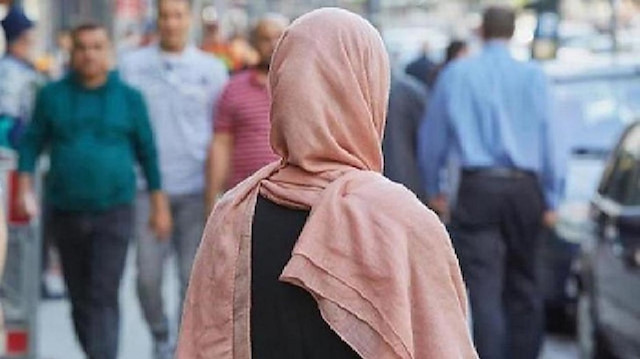
Growing anti-foreigner sentiments endanger German national security 30 years after fall of Berlin Wall
Germany marks the 30th anniversary of the fall of the Berlin Wall this week, but growing xenophobia and Islamophobia in especially formerly communist East Germany is seriously threatening the country's national security.
Three decades after the collapse of the Berlin Wall, German authorities are grappling with the rise of far-right ideology in the eastern part of the country.
The most damning evidence is the rise of the far-right Alternative for Germany (AfD) party, which crept into the Bundestag in 2017; in parts of eastern Germany it is the most popular party.
The AfD is in fact riding a shocking rise of German Islamophobia and xenophobia. In its annual report on the state of German unity, the German government has warned that Eastern Germany's xenophobia represents a danger to social harmony.
Repeated attacks against refugee centers and Islamic centers in Eastern Germany are proof of the fact that these xenophobic violent acts are a serious danger to Germany's national security.
A case in point was the East Germany-based neo-Nazi terror cell the National Socialist Underground (NSU) which was involved in anti-foreigner killings from 2000-2007.
The NSU's racially motivated attacks still resonate to this day. Over the past week, high-level politicians from parties representing the whole German political spectrum have received death threats.
Around half of the German population has concerns about Islam, according to a recent study on democracy and religious tolerance. But what is the reason behind the negative feeling toward Islam felt by many?
While Germans are generally viewed as tolerant, their attitude toward Muslims is different. This is indicated by a study published by the Bertelsmann Stiftung’s ‘Religion Monitor’.
But 52% perceive the religion of Islam as a threat. For Germans living in eastern states, the number of people who feel this way (57%) is higher than those in the west of the country where 50% view the religion as a threat.
El-Menouar said there was cause for concern because these fears over Islam can be exploited by far-right populist groups.
A country of over 81 million people, Germany is home to the second-largest Muslim population in Western Europe after France. Among the country’s nearly 4.7 million Muslims, at least three million are of Turkish origin.
According to Dresden-based political scientist Werner Patzelt, the reason for the concerns against Muslims can be traced back to German Chancellor Angela Merkel's decision to keep the borders open during the height of the refugee crisis in 2016.
"As a whole, it's because of the immigration politics of Chancellor Merkel back in 2015," he said.
Along with the anti-Islam sentiment, many people also feel strongly against Merkel and the German political elite, which three decades after the fall of the Berlin Wall has led to a mounting societal polarization.
Hello, the comments you share on our site are a valuable resource for other users. Please respect other users and different opinions. Do not use rude, offensive, derogatory, or discriminatory language.
The floor is all yours.








